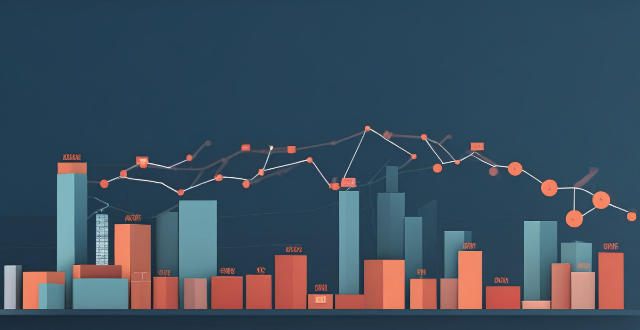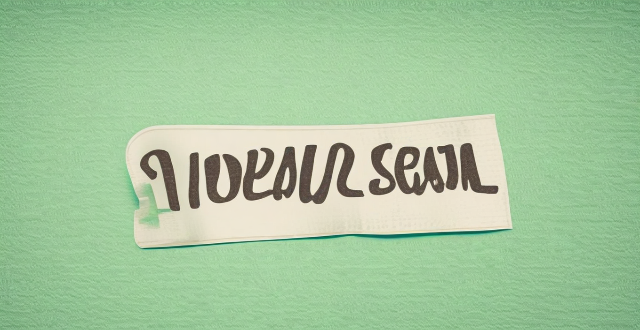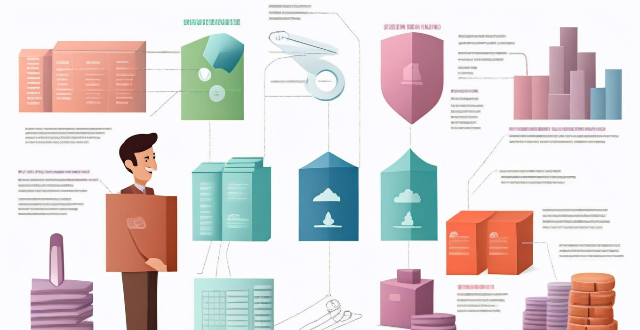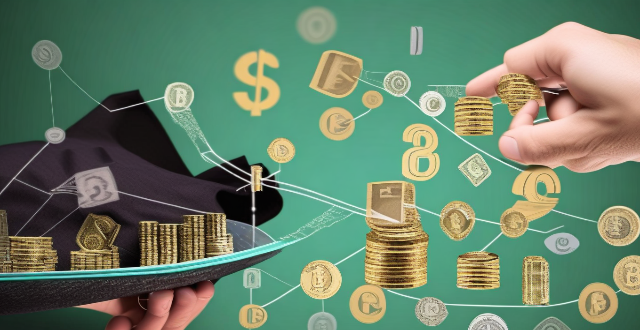Currency Tree

What should I do with leftover currency from my travels ?
When you return from a trip, you may find yourself with some leftover currency from the country you visited. Here are some options for what to do with it: keep it for future trips, exchange it back to your home currency, use it for online purchases, give it as a gift or souvenir, or donate it to charity. Consider your personal preferences and circumstances when deciding which option is best for you.

Can I exchange currency online ?
You can exchange currency online through banks, currency exchangeYou can exchange currency online through banks, currency exchange-peer platforms, mobile currency exchange websites, peer-to-peer platforms, mobile apps, and cryptocurrency exchanges. Each option has its own advantages and disadvantages in terms of convenience, fees, and exchange rates. It's important to research and compare different options to find the one that best suits your needs.

How do economic indicators influence currency exchange rates ?
Economic indicators significantly influence currency exchange rates by reflecting the health and performance of an economy, affecting demand for its currency. Key indicators include Gross Domestic Product (GDP), interest rates, inflation rates, trade balance, political stability, employment data, and consumer confidence. A strong economy typically leads to an appreciation of its currency, while a weaker economy can result in depreciation. These indicators are closely monitored by investors and traders to make informed decisions about buying or selling currencies.

What are the most common scams in currency exchange ?
The most common scams in currency exchange include high fees and hidden charges, unfavorable exchange rates, phishing scams, and fake currency. To avoid these scams, it is important to read the fine print before agreeing to any transaction or service, check the current exchange rate before making a transaction, never give out personal information unless you are sure you are dealing with a legitimate source, and always inspect currency carefully before accepting it.

What is the best way to exchange currency ?
Exchanging currency is a common practice for travelers, businessmen, and investors. However, the process can be confusing and costly if not done correctly. In this article, we will discuss the best ways to exchange currency while minimizing fees and maximizing convenience. Understanding Currency Exchange Rates: Before diving into the best ways to exchange currency, it's essential to understand what affects currency exchange rates. These rates are influenced by various factors such as economic indicators, political stability, and market speculation. To get the best rate possible, keep an eye on these factors and plan your exchange accordingly. Researching Exchange Options: One of the most common ways to exchange currency is through banks and credit unions. While convenient, these institutions often have high fees and unfavorable exchange rates. It's important to compare rates and fees before choosing this option. Currency exchange offices are another popular choice for exchanging currency. They typically offer better rates than banks but may still charge high fees. It's crucial to research each office's policies and rates before making a transaction. Using an ATM to withdraw foreign currency can be a cost-effective option, especially for small amounts. However, be aware of any additional fees charged by your bank or the ATM operator. Prepaid currency cards allow you to load multiple currencies onto one card, making them a convenient option for travelers. They usually offer competitive exchange rates and low fees, but it's important to read the terms and conditions carefully. Online currency exchange services provide an easy and efficient way to exchange currency. They often offer competitive rates and low fees, but it's essential to research each service thoroughly before using them. Choosing the Best Option: The best way to exchange currency depends on several factors, including the amount of money being exchanged, the destination country, and personal preferences. Here are some general tips to help you choose the best option: Compare rates and fees: Always compare rates and fees across different options before making a decision. This will help you find the most cost-effective solution. Consider convenience: If you need access to cash quickly or frequently, consider using an ATM or prepaid currency card. These options allow you to withdraw money easily while traveling. Plan ahead: Don't wait until the last minute to exchange currency. Plan ahead and research your options to ensure you get the best rate possible. Be aware of scams: Unfortunately, there are many scams associated with currency exchange. Be wary of street vendors offering exceptionally good rates or other suspicious activities. Stick to reputable institutions and services to avoid potential fraud.

Can I use my credit card for currency exchange ?
Using a credit card for currency exchange is convenient but comes with potential fees and less favorable exchange rates. It involves dynamic currency conversion by your bank or credit card issuer, which may add a spread or margin to the rate. To use your credit card for currency exchange, ensure it's eligible for international use, notify your bank of travel plans, understand associated fees, choose to pay in local currency, and monitor transactions. While offering convenience and security, drawbacks include fees, potentially unfavorable rates, and the need to manage credit limits. Comparing cards based on fees and rewards can optimize benefits.

Should I use a bank or a currency exchange service ?
When it comes to exchanging currencies, you have two main options: banks and currency exchange services. Both have their advantages and disadvantages, so it's important to consider your specific needs before making a decision. Advantages of Using a Bank: - Security: Banks are generally considered more secure than currency exchange services because they are regulated by government agencies. Your money is protected by insurance policies, such as the Federal Deposit Insurance Corporation (FDIC) in the United States. - Convenience: Many banks offer online and mobile banking services, allowing you to easily manage your account and make transactions from anywhere. You can also withdraw cash from ATMs worldwide without additional fees. - Fees: Banks typically charge lower fees for currency exchange compared to currency exchange services. Some banks even offer fee-free currency exchange if you have an account with them. Advantages of Using a Currency Exchange Service: - Better Exchange Rates: Currency exchange services often offer better exchange rates than banks because they specialize in foreign currency exchange. This means you can get more money for your currency than if you were to use a bank. - No Fees: Many currency exchange services do not charge any fees for exchanging currencies. However, some may still charge a small commission or service fee. - Speed: Currency exchange services are usually faster than banks when it comes to exchanging currencies. They often have shorter processing times and can provide you with the currency you need quickly. Disadvantages of Using a Bank: - Limited Availability: Not all banks offer foreign currency exchange services, especially smaller local banks. You may need to visit multiple banks to find one that offers this service. - Higher Fees: As mentioned earlier, banks typically charge higher fees for currency exchange compared to currency exchange services. This can add up quickly if you need to exchange large amounts of currency. Disadvantages of Using a Currency Exchange Service: - Security Risks: Currency exchange services are not regulated by government agencies like banks are. This means there is a higher risk of fraud or theft when using these services. - Limited Locations: Currency exchange services may not be available in all locations, especially in rural areas or smaller towns. You may need to travel to a larger city or airport to find one. - Limited Services: Currency exchange services typically only offer foreign currency exchange and do not provide other banking services like checking accounts or loans. If you need additional financial services, you will need to use a separate bank.

What is the importance of tree cover in urban areas ?
The text discusses the importance of tree cover in urban areas for environmental, social, and economic benefits. It highlights the role of trees in improving air quality, regulating climate, managing water, enhancing aesthetic value, building communities, reducing noise pollution, increasing property values, conserving energy, and attracting tourism. The text also suggests ways to promote tree cover in urban areas through planting initiatives, maintenance and protection, and education and awareness campaigns.

Is it better to exchange currency before or after arriving at my destination ?
Exchanging currency is an important aspect of international travel. Depending on your travel plans, it may be more advantageous to exchange currency before or after arriving at your destination. Here are some factors to consider: ## Pros of exchanging currency before arrival: - Convenience - Better rates - Security ## Cons of exchanging currency before arrival: - Higher fees - Risk of loss/theft - Limited flexibility ## Pros of exchanging currency after arrival: - Better rates - More options - Flexibility ## Cons of exchanging currency after arrival: - Time constraints - Lack of availability - Language barriers In conclusion, whether it's better to exchange currency before or after arriving at your destination depends on various factors such as convenience, safety, and cost. It's essential to weigh these factors carefully and choose the option that best suits your needs and travel plans.

What documents do I need to exchange currency ?
Exchanging currency at Bank of China or any other financial institution requires presenting valid personal identification documents and relevant materials proving the necessity for the exchange, including proof of need and a usage declaration. The process adheres to specific regulations set by the State Administration of Foreign Exchange, such as annual total amount management and verification and approval procedures. It is crucial to understand these requirements and check with your bank beforehand to ensure a smooth currency exchange experience.

What are the impacts of climate change on tree species diversity in forests ?
Climate change significantly impacts tree species diversity in forests through altered growth and reproduction patterns, range shifts, disturbance regimes, direct physiological effects, and changes in ecosystem services. These impacts not only affect the health and structure of forests but also have broader ecological and societal implications.

How can I ensure I get the best exchange rate ?
When exchanging currencies, it is important to ensure that you get the best possible exchange rate. This can help you save money and get the most value for your money. In this guide, we will discuss some tips and strategies that can help you achieve the best exchange rate possible. The first step in ensuring the best exchange rate is to research the current exchange rates online. There are many websites that provide real-time information on exchange rates, such as XE.com or OANDA. By checking these sites, you can get an idea of what the current exchange rate is and compare it to other providers. Once you have an idea of the current exchange rate, it's time to compare different providers. Look for banks, currency exchange offices, and even online services that offer competitive rates. Make a list of potential providers and compare their rates side by side. Using a credit card that doesn't charge foreign transaction fees can be a great way to get the best exchange rate. Some credit cards also offer rewards programs that give you cashback or points for using your card abroad. Look for cards that offer these benefits and make sure they don't charge any additional fees for foreign transactions. Prepaid currency cards are another option to consider when traveling abroad. These cards allow you to load them with foreign currency before your trip and use them like a debit card. They often come with lower fees than traditional bank accounts and may offer better exchange rates than exchanging cash at a currency exchange office. If you prefer to exchange cash, shop around at local currency exchange offices to find the best rates. Don't be afraid to walk away from an office if you feel like the rate they're offering isn't fair. Often, just by showing that you're willing to walk away, they may offer you a better rate. Getting the best exchange rate requires some research and planning ahead of time. By following these tips and strategies, you can ensure that you get the most value for your money when exchanging currencies.

How do I avoid high fees when exchanging money ?
Exchanging money can be costly, but there are ways to avoid high fees. Use your bank or credit card for transactions, consider a prepaid travel card, look for no-fee ATMs, use online currency exchange services, and negotiate with local currency exchange offices. By being aware of your options and doing research ahead of time, you can save money and make your travels more enjoyable.

What is Cross-Border Payment ?
Cross-border payment is the process of transferring money from one country to another, involving currency exchange and various payment methods. It is essential for businesses operating in multiple countries, allowing them to receive and make payments in different currencies. Key features include currency exchange, payment methods, regulations, fees, and timeframes. Benefits of cross-border payments include global expansion, increased sales, reduced costs, and improved cash flow.

How does climate change affect forest ecosystems ?
Climate change affects forest ecosystems in numerous ways, including changes in temperature and precipitation, shifts in tree species distribution, alterations in fire regimes, increased pest and disease outbreaks, and reduced carbon sequestration. These impacts can lead to heat stress for trees, altered seasonal events, changes in tree growth rates, increased wildfire risk, and even tree mortality during extreme droughts. Invasive species may also outcompete native trees, further altering the structure and function of forest ecosystems. Addressing these challenges will require a multifaceted approach that includes reducing greenhouse gas emissions, protecting and restoring forests, and adapting to changing conditions.

What role do trees play in natural carbon sequestration ?
The text discusses the role of trees in natural carbon sequestration, a process that involves the removal and storage of carbon dioxide from the atmosphere. Trees absorb CO2 through photosynthesis and store it in their biomass, contributing to soil organic matter and acting as carbon sinks. Responsible forest management practices and preservation of existing forests are essential for maximizing the potential of these ecosystems for carbon sequestration and mitigating climate change.

How does deforestation contribute to both climate change and biodiversity loss ?
The text discusses the impact of deforestation on climate change and biodiversity loss. It explains how trees act as carbon sinks, absorbing CO2 from the atmosphere during photosynthesis, but when forests are cleared, this process is halted, and the stored carbon is released back into the atmosphere as CO2. Deforestation also involves burning trees, which releases other greenhouse gases like methane and nitrous oxide, contributing to global warming. The text further explains how forests provide habitat for countless species of animals, insects, and plants, but clearing forests destroys these habitats, leading to a loss of biodiversity. Even partial deforestation can fragment habitats, isolating populations and reducing genetic diversity. Without tree roots to hold soil together, erosion increases, affecting water quality and availability, which can further impact species that depend on specific water sources or soil types. The text concludes that deforestation is a complex issue with far-reaching consequences for both climate change and biodiversity loss, requiring a multifaceted approach that considers both environmental protection and human needs.

What currencies can be used for Cross-Border Payment ?
The currencies used for cross-border payments vary widely depending on numerous factors, including economic strength, political stability, and market acceptance. Major world currencies like the US Dollar, Euro, British Pound Sterling, and Japanese Yen are commonly used due to their global acceptance and role in international trade and financial markets. Other currencies such as the Chinese Yuan/Renminbi, Canadian Dollar, and Australian Dollar also play significant roles in cross-border payments, particularly in commodities trade and regional economies. Digital currencies, including Bitcoin and stablecoins, are increasingly being used for cross-border payments, offering decentralized transactions and the benefits of blockchain technology. Factors influencing currency choice include regulatory environment, cost considerations, market fluctuations, and business agreements.

How do I calculate the conversion rate for different currencies ?
Calculating conversion rates for different currencies involves determining the current exchange rate, calculating the conversion rate, considering any fees or commissions, and using a conversion tool if needed. By following these steps, you can ensure that you are getting an accurate estimate of the amount of currency you will receive after the conversion.